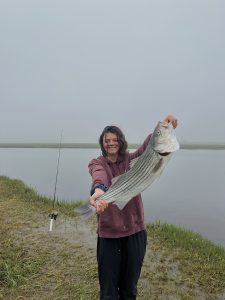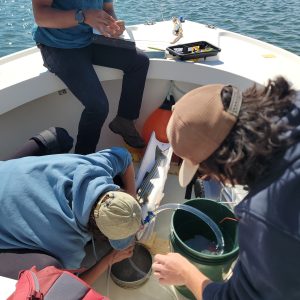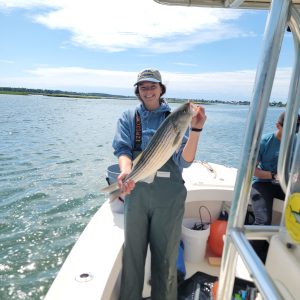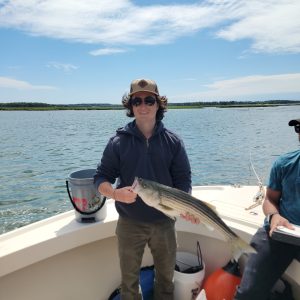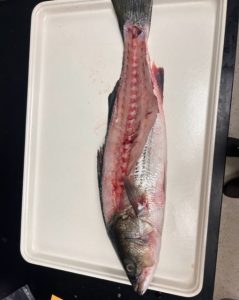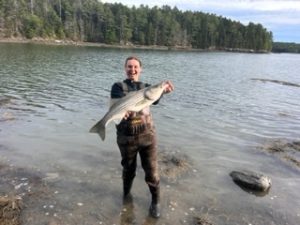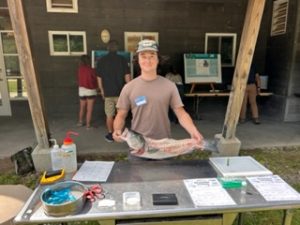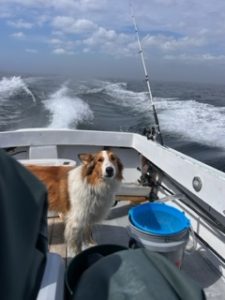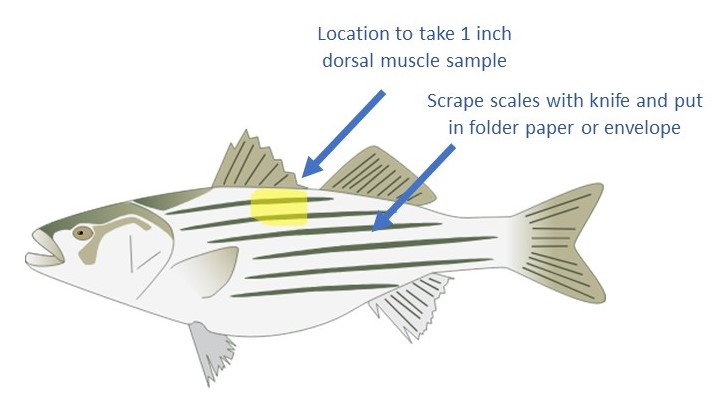Maine Striped Bass Foraging Ecology Study
Calling All Anglers: Our UMaine Research Team Wants To Sample Your Striped Bass for Science!
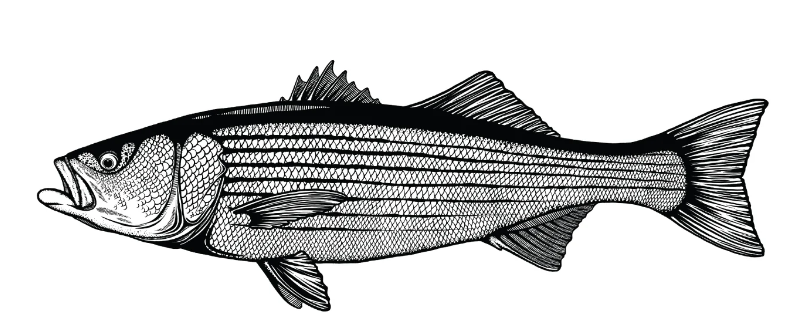
GOT GUTS?

How Can You Help?
Charter Boat Captains
Can help by taking two trained field technicians out on a striped bass charter trip to collect stomach samples non-lethally (via stomach flushing). Please reach out to the project lead, Abby Remick (401-651-1034), for more information if you are willing to take us out with you!
Recreational Anglers
If you harvest a legal sized striped bass (28-31″ TL), DONATE the filleted fish rack with the stomach and other organs! Dropoff locations are listed below and range from southern Maine to Midcoast.
Instructions to donate a striped bass:
If you don’t want to save the whole rack, put the stomach in a plastic ziplock bag and label the outside with date, location, length, sex (if known).
DROP OFF LOCATIONS:
OUR COOPERATIVE RESEARCH PARTNERS :
Project Information
A University of Maine research team is conducting the one of the first coastwide assessments of striped bass diet in Maine waters. While striped bass diet has been well documented in southern waters along the U.S. Atlantic coast, there has never been a comprehensive study of what they are eating in the Gulf of Maine! This project seeks to understand how striped bass diet varies across fish size, age, sex, location, and season.
Why is this Important?
- Filling a Data Gap
- Striped bass are managed by the Atlantic States Marine Fisheries Commission (ASMFC). In 2019 ASMFC listed the continued evaluation of striped bass dietary needs in relation to health condition as a high priority research recommendation.
- Foraging ecology studies help scientists understand the flow of energy throughout the food webs in Maine coastal ecosystems. Understanding how striped bass feed (seasonally and spatially) will allow us to make important trophic connections between the predator, their prey species, and overall ecosystem health.
- Striped bass are a highly migratory species, and we are interested in how their foraging habits and protein/lipid accumulation shift seasonally and along the coast.
- Contribution to Fisheries Management
- Striped bass are currently a rebuilding stock according to the ASMFC 2024 benchmark stock assessment, making this study timely in addressing important questions about their diets.
- This research can contribute to making informed fisheries management decisions that best support the conservation of the striped bass populations and their prey in Maine.
- Diet data can feed directly into more holistic ecosystem-based fisheries management. This can be used in future striped bass stock assessments as well as future prey species stock assessments (i.e. Atlantic herring, Atlantic mackerel, Atlantic menhaden).
- If we can quantify the abundance and size distribution of commercially harvested prey species that striped bass consume, this can contribute to natural mortality or predation mortality estimates and allow for further protection of key striped bass prey species.
We know how valued striped bass are ecologically, recreationally, and culturally in Maine. With your help, we can perform important research to contribute to their conservation and management efforts! Our research team will be partnering with the Maine recreational fishing industry and the public to gain striped bass samples in different rivers.
2025 Field Season Updates!
After a successful first season, we were able to sample 287 striped bass thanks to ALL the outstanding involvement from our recreational fishing partners! We also were able to successfully use our non-lethal sampling methods (gastric lavage) on board various charter boats. We will be sampling again in 2026 and would like to expand our connections from last year. Please reach out of you are interested in participating next season!
Some pictures below from the 2025 field season
Some pictures from in the lab (or in the guts)
**If you want to deepen your involvement with participating in the study, please reach out to us via phone or email for further information/questions on this process. **
Check out a youtube short that one of our summer interns put together! Video credit: Gaddum Reddy.
What do the different organs tell us?
Any Questions?
Please feel free to reach out to us with any questions about the study or how you can participate!
Abby Remick (401) 651-1034, abrielle.remick@maine.edu
Michelle Staudinger (631) 664-7004, michelle.staudinger@maine.edu

